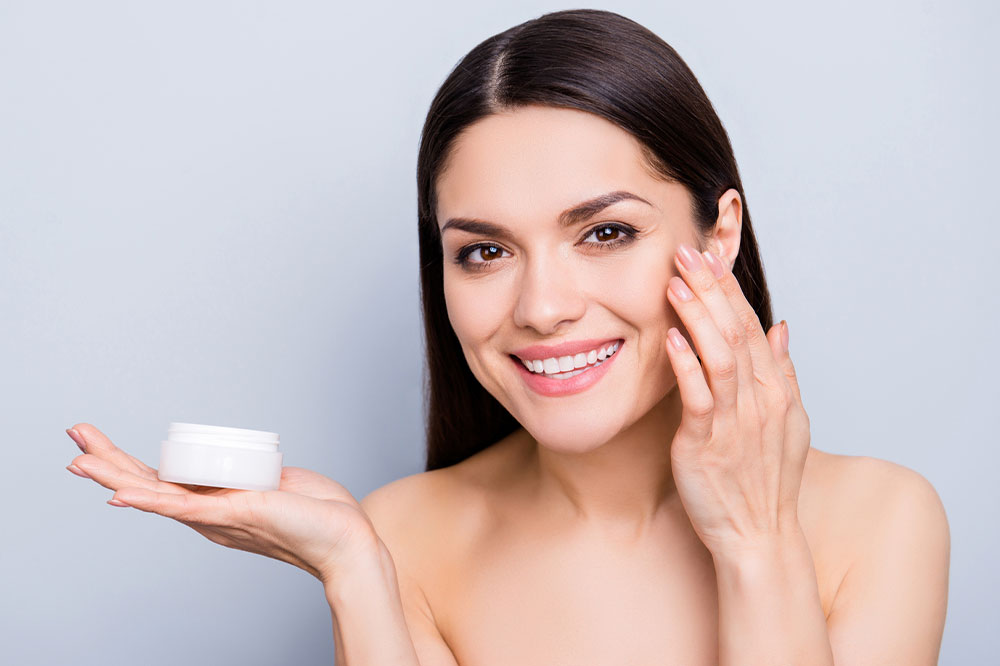
13 tips for better eczema management
Are you struggling with eczema flare-ups? Do the dry, itchy patches on your skin keep you from living an active lifestyle? Skin diseases and conditions like eczema can be uncomfortable and often embarrassing, but there are ways to manage the symptoms. This article will share some simple strategies for minimizing discomfort and living life to its fullest despite having eczema. Read on to learn more about managing your daily skincare routine and other helpful tips.
Common symptoms of eczema
Tiny bumps on the skin
Dry and scaly skin
Itchy rashes
Dark under eyes
Redness and swollen skin
Lifestyle changes that can alleviate eczema symptoms
While nothing can eliminate the symptoms of skin diseases like atopic dermatitis (AD) or eczema, they can be alleviated to a certain extent. Dermatologists propose the following simple changes to improve the situation:
Take lukewarm showers with mild soaps
Short, rapid showers with unscented soaps and moisturizing twice daily immediately after the shower might be enough for mild cases of eczema. Gentle soaps are recommended while taking a bath or washing hands in the kitchen. Use products without alcohol, retinoids, or alpha-hydroxy acids (AHA), as they prevent skin dehydration. Additionally, avoid artificial fragrances because they include chemicals that can irritate the skin.
Consider taking a disinfecting bath
Due to their susceptibility to infections, people with skin diseases like eczema may benefit from bleach baths that mimic those in a chlorinated pool. Add a half cap of bleach to the water once or twice a week and soak for 10 minutes. A cup of vinegar added to a full tub of water may help the bactericidal effect (of killing bacteria) on the skin without causing harm.
However, according to the National Eczema Association, anybody with bleach sensitivity or allergic asthma should consult their doctor before doing this.
Moisturize the skin properly
Moisturize the skin after showering and whenever it feels dry. Well-hydrated skin is less vulnerable to irritants and bacteria that can get through the lipid barrier when dehydrated. Instead of a lotion, try a fragrance-free cream or ointment to avoid skin irritation.
Opt for fragrance-free skincare
If one suffers from eczema or related skin diseases, it’s important to watch out for artificial fragrances in skin care products. Don’t be fooled by claims of “unscented” – this often indicates that the aroma has been masked and could still cause an allergic reaction. Opt instead for completely fragrance-free items.
Consider patch tests of skincare products
All skincare products should be tested before use. Besides fragrances, some skincare chemicals like ethanol and lanolin might aggravate skin diseases like eczema. Applying a new skincare product to the inside of the arm for 7–10 days will help a person test it out. However, one can continue using the product when one’s skin shows no adverse reactions.
Find out what causes eczema
Knowing the causes of eczema flares and how to stay clear of these triggers is essential. From regular fabrics to certain temperatures – anything can be a potential source that may lead to an outbreak. Awareness of what brings on symptoms will support a person in keeping flare-ups under control.
Dress comfortably in 100% cotton
Loosen up the wardrobe to keep the irritation from eczema at bay. Opt for loosely fitted garments made with cotton, which helps air circulate better, keeping skin feeling healthy. When it comes to work attire, loosening a top button or two can provide much-needed relief without compromising style. Remember to opt for more comfortable shorts and underwear.
Put on gloves and go to bed
Suffering from dry, itchy hands due to a skin disease like eczema? Take proactive steps to soothe the skin before bed by soaking hands in warm water and applying a fragrance-free hydrating cream or ointment. Slip on some cotton gloves after application to help lock in moisture while sleeping.
Choosing the appropriate bedding
Choose bedding made from cotton, silk, or bamboo to help regulate body temperature and keep the skin feeling soft. Thread count plays an important role – the higher it is, the softer it’ll remain over time. However, lower thread counts can become rough if not washed correctly. Whether one opts for cotton sheets or indulgent silks, follow washing instructions properly.
Apply natural oils
Eczema-related blisters or exposed skin can lead to infection. Natural oils, such as coconut oil and sunflower oil, are known for their antibacterial and anti-inflammatory characteristics, which can help a person avoid infections. Furthermore, they are natural moisturizers that help soothe the skin.
Observe the eczema treatment regimen
Consulting a dermatologist to develop a treatment plan is crucial whether one experiences occasional flare-ups or persistent eczema. One can also consult an allergist to identify the causes of the skin disease. Discuss alternative treatment options with the dermatologist in case of any side effects.
Ensure sufficient Vitamin D levels
According to research, children and adolescents with eczema or related skin diseases are more prone to having low levels of Vitamin D. Besides increasing sun exposure, one should consume vitamin D-rich foods like sardines, eggs, and salmon.
Discover ways to relax
Stress often manifests in poor personal hygiene, lack of a nutritious meal plan, and lack of sound sleep. These may directly impact the skin and aggravate eczema. Make time every day to unwind, even if only for a few minutes. Invest time in meditation, take a walk, or listen to calming music or a funny podcast to distract yourself from stress.
Wrapping Up
Skin diseases and conditions like eczema may be irritating, but there are various ways to protect the skin and manage flare-ups. Use an eczema-friendly moisturizer, avoid recognized irritants, protect the skin from wind, cold, and pool water, and adhere to the treatment plan. If one is still dealing with eczema or related skin diseases after trying some of these remedies, it is best to consult a dermatologist about different ways to treat outbreaks.


